Research Collections and Support
Libraries are increasingly leveraging the raw materials of scholarship and knowledge formation by emphasizing the creation and curation of institutional research assets and outputs, including digitized special collections, research data, and researcher profiles. Our work informs current thinking about research collections and the emerging services that libraries are offering to support contemporary modes of scholarship. We are encouraging the development of new ways for libraries to build and provide these types of collections and deliver distinctive services. Our efforts are focused in the following three areas:
Presentations

Open for all. Reusable for whom? A review of what data reusers want and how data repositories can deliver
virtual
Understanding how data reusers seek and evaluate potential data for reuse will aid data curators, data managers, and developers in the open repository field. We will review past studies of data reusers, specifically a qualitative study of 105 researchers from three disciplinary communities: quantitative social science, archaeology, and zoology. The study identified 12 types of context information that data reusers mention needing when deciding whether to reuse data. Next, we will use the context types to create a feature set and assess how data repositories provide the needed context information to users. Finally, using findings from our assessment, we will showcase desirable features in use to prototype the design of a reuser-oriented data repository that developers can use to improve their data repository interface.
Topics: Research Data Management
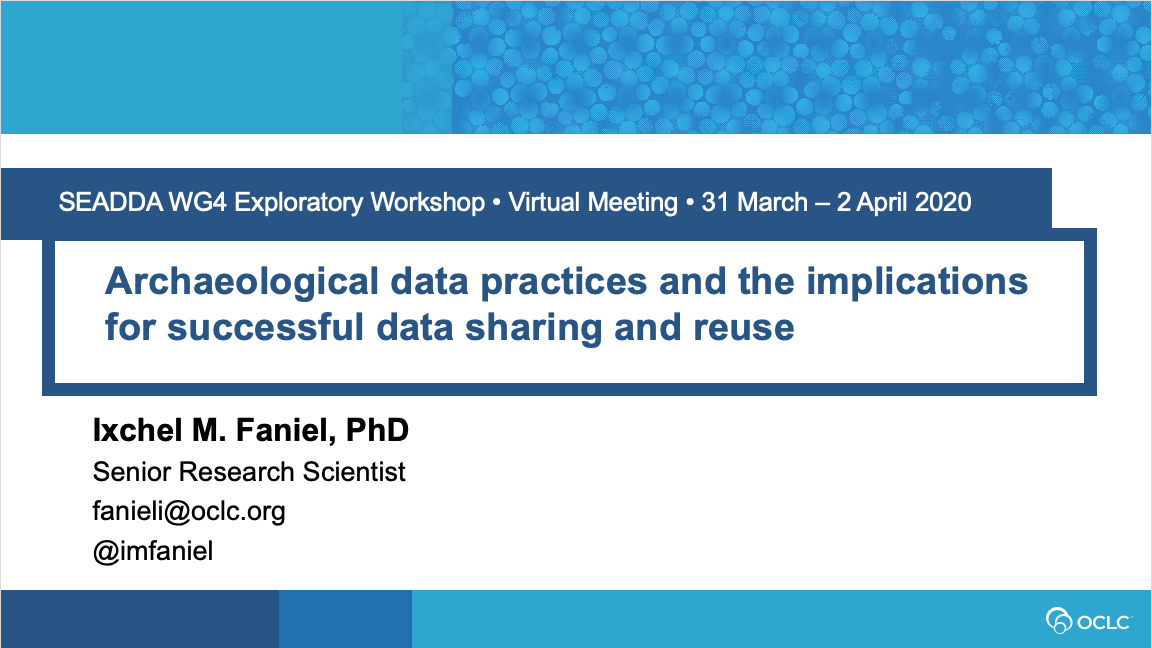
Archaeological data practices and the implications for successful data sharing and reuse
virtual
In this keynote presentation, Ixchel M. Faniel discusses findings from several studies examining archaeological data practices and needs and the implications for successful data sharing and reuse.
Keynote recording available from SEADDA.
Topics: User Research, Research Data Management, SLO-Data
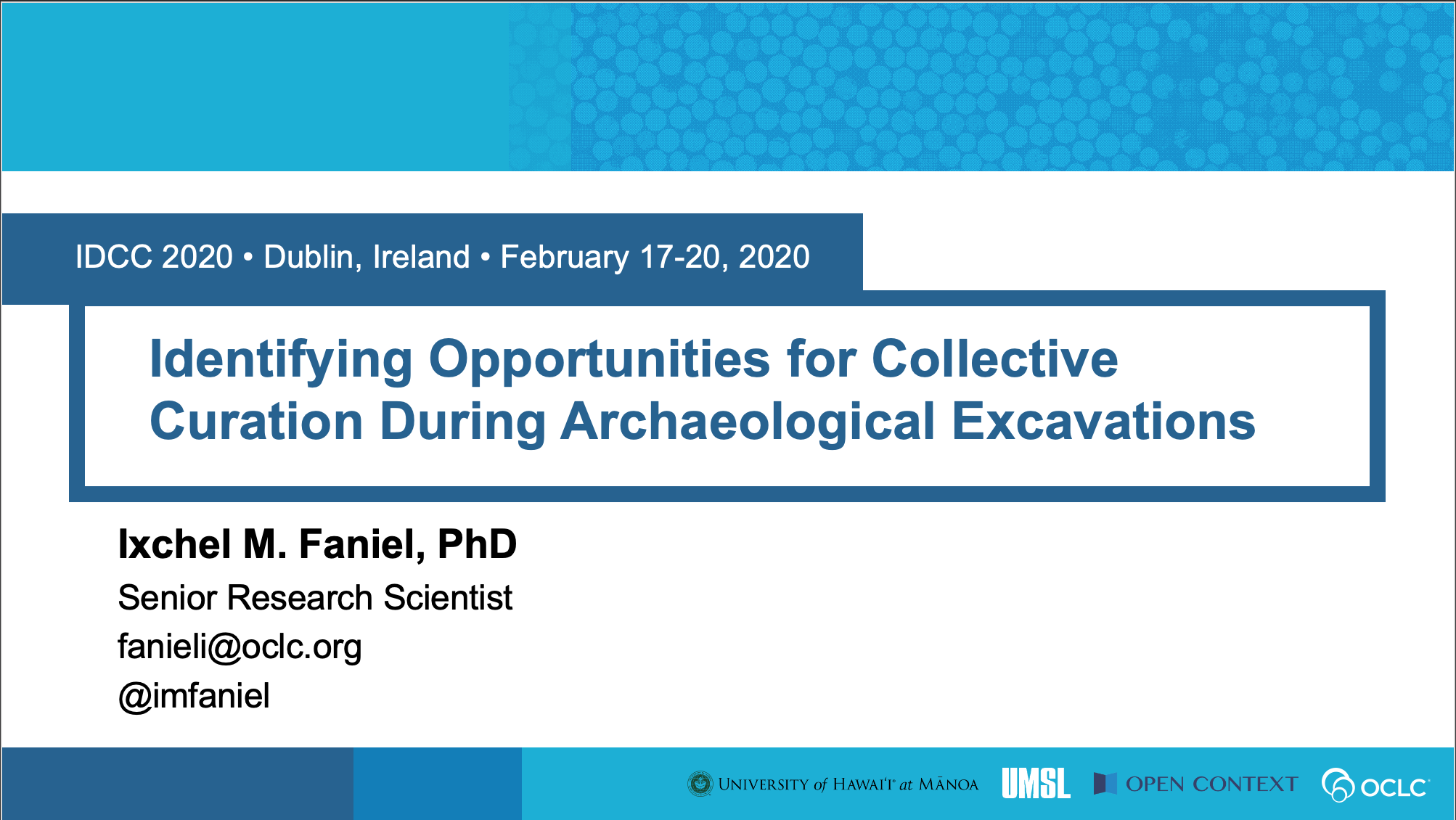
Identifying Opportunities for Collective Curation During Archaeological Excavations
Dublin, Ireland
Archaeological excavations are comprised of interdisciplinary teams that create, manage, and share data as they unearth and analyze material culture. These team-based settings are ripe for collective curation, particularly among the excavation teams responsible for unearthing the materials and the specialists responsible for analysing them. Yet, findings from a study of four excavation sites show specialist data tend to remain unlinked and decontextualized from excavation data. This presentation highlights findings from the study, opportunities identified for collective curation, and responses from the four excavation projects.
Topics: Research Data Management, User Research, SLO-Data
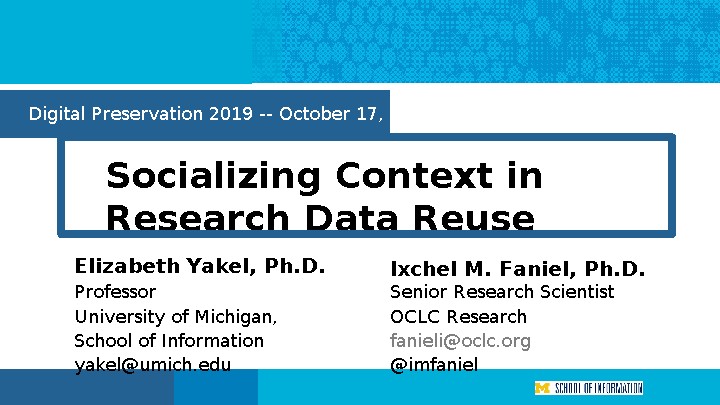
Socializing Context in Research Data Reuse
Tampa, Florida, USA
Presenters focus on data reuse and the data reuser's need for contextual information, the sources of context information, and the reasons why this information is needed.
Topics: Research Data Management
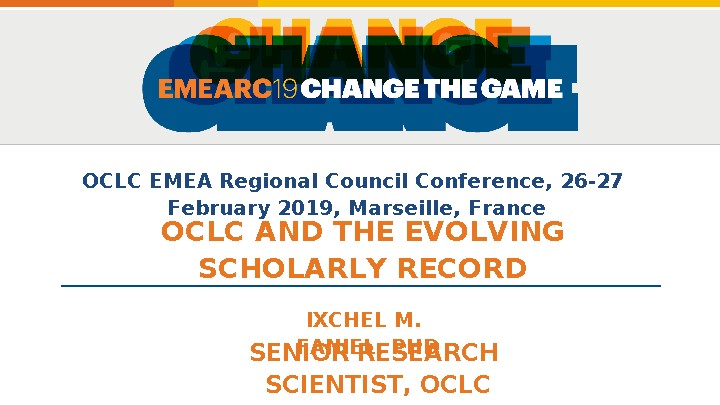
OCLC and the Evolving Scholarly Record
Marseille (France)
Ixchel M. Faniel explores the contours of the evolving scholarly record, including stakeholders, stewardship, conscious coordination, and the "inside out library."
Topics: Evolving Scholarly Record, Research Data Management, Research Information Management, User Research
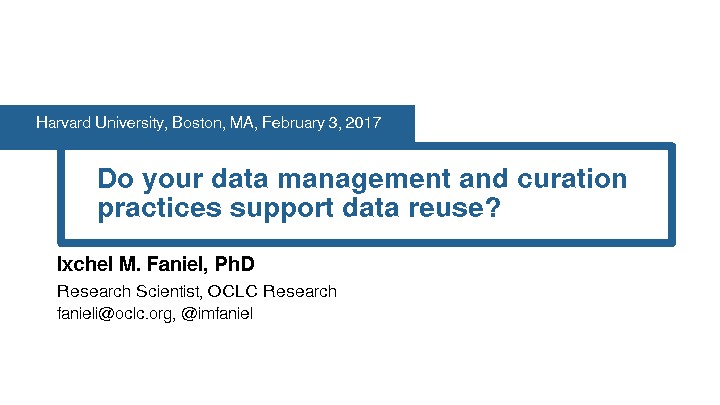
Do Your Data Management and Curation Practices Support Data Reuse?
Cambridge, Massachusetts (USA)
In this presentation, Faniel introduces the concepts of data management and data curation for archaeology in the context of optimizing for data reuse.
Topics: Research Data Management, User Research